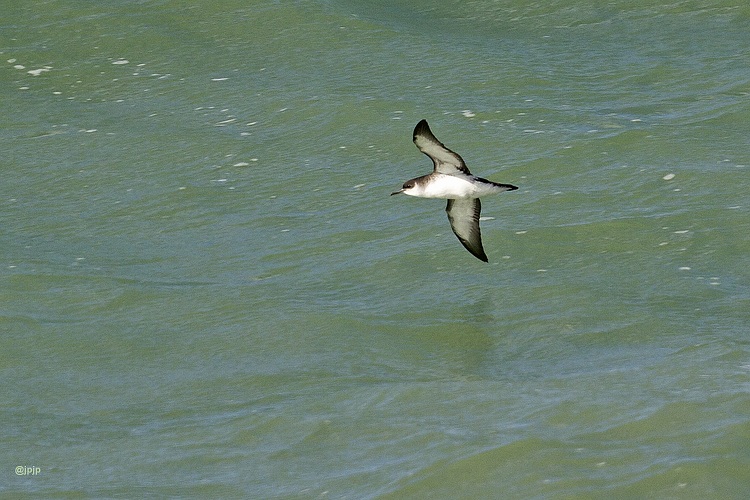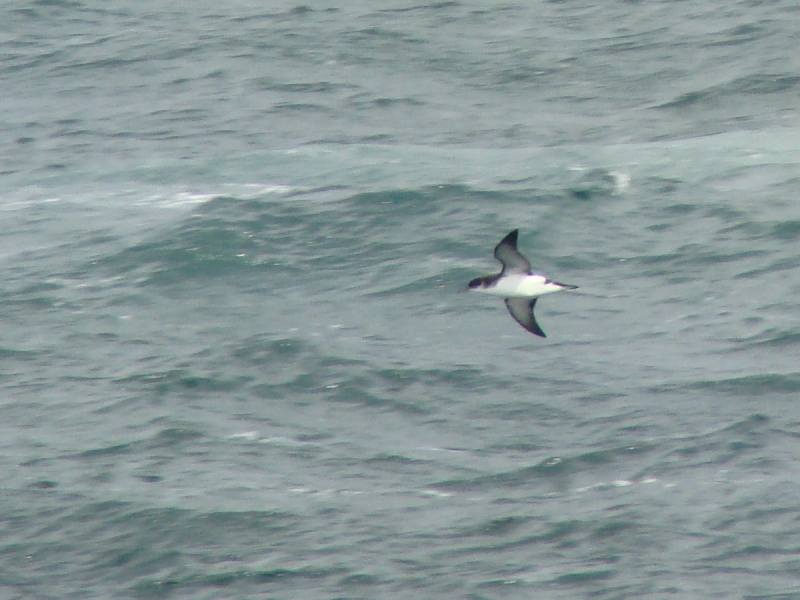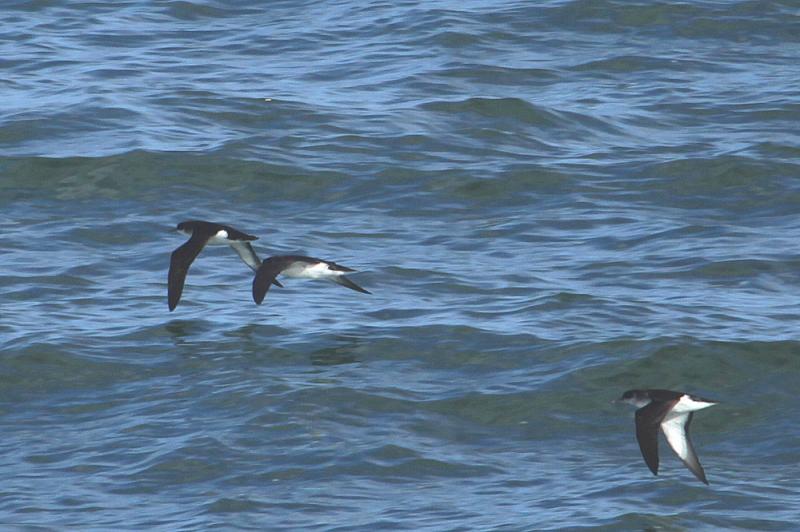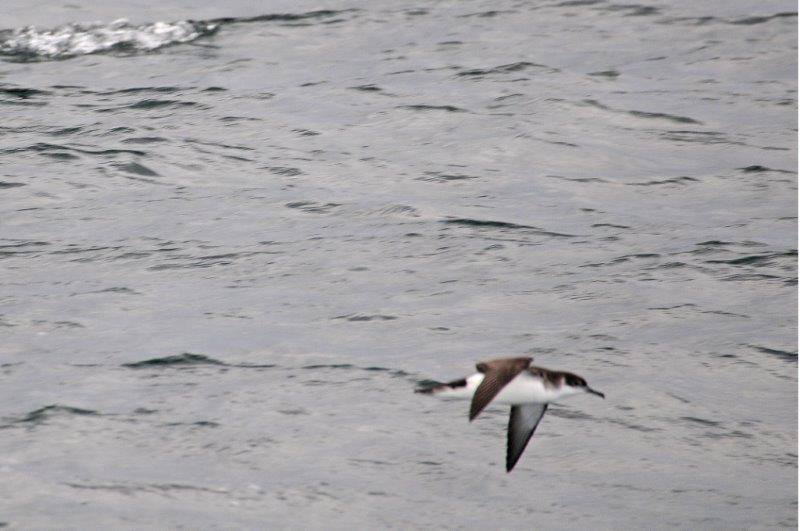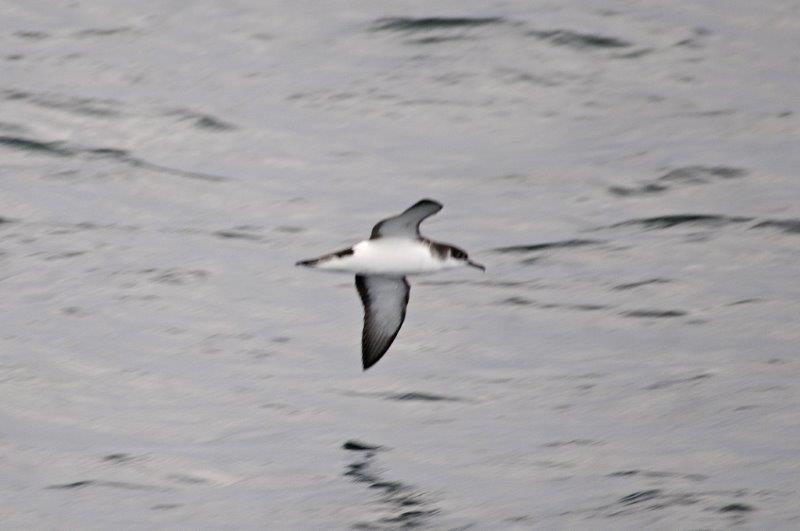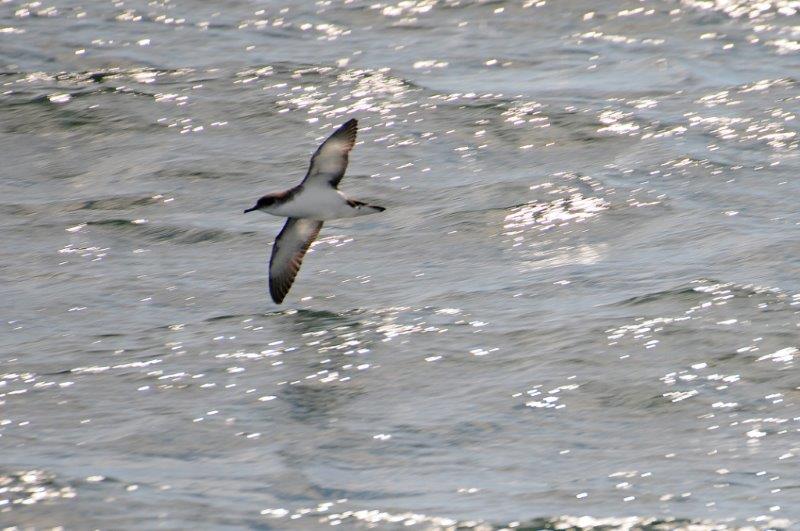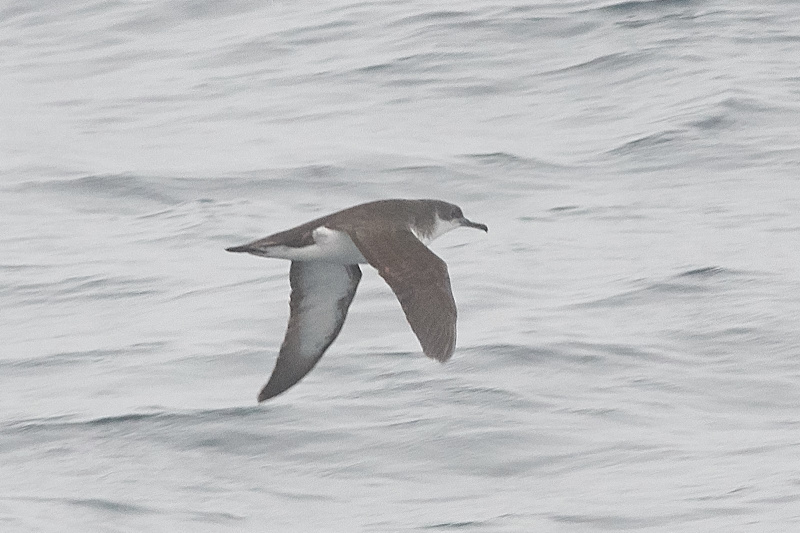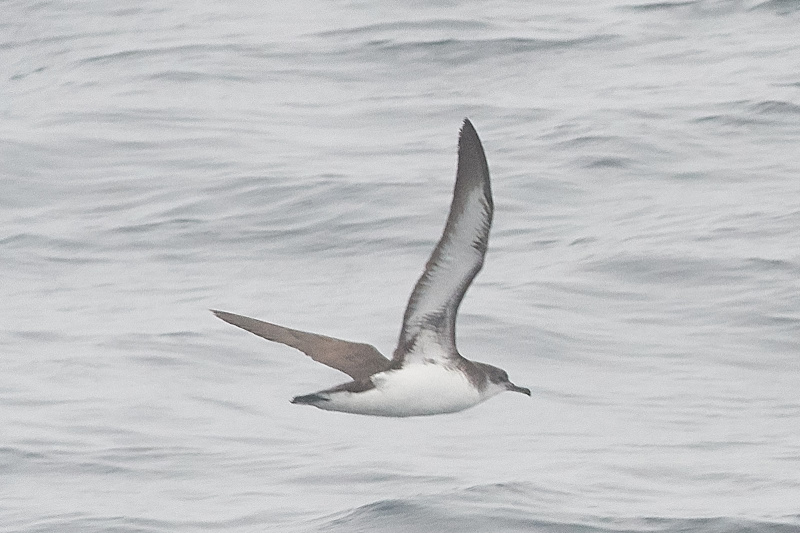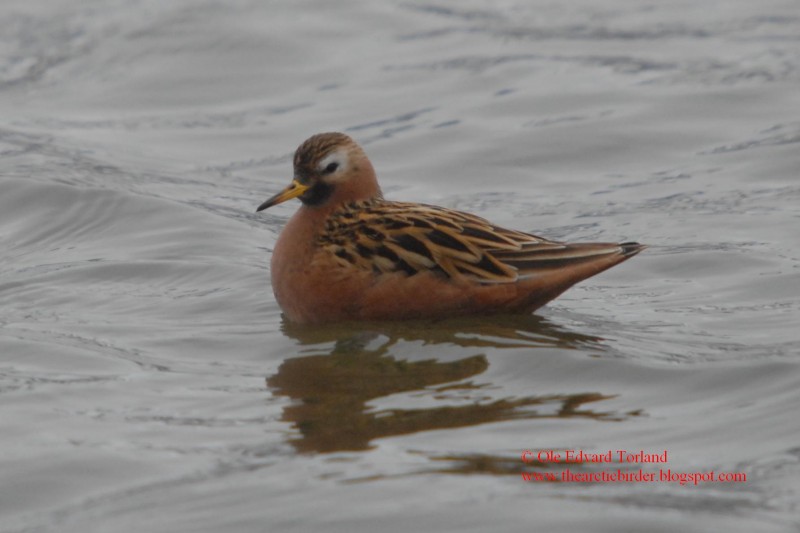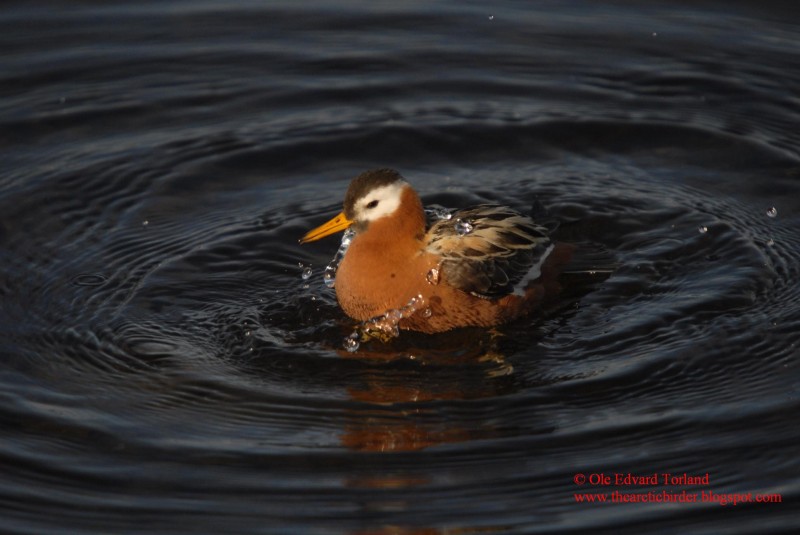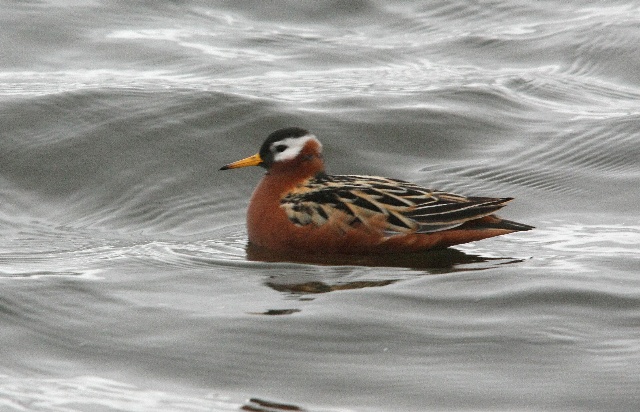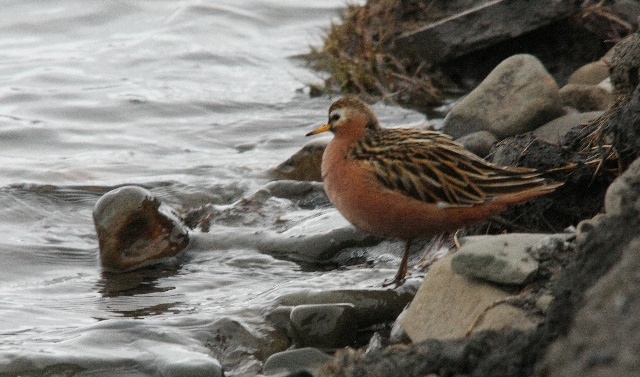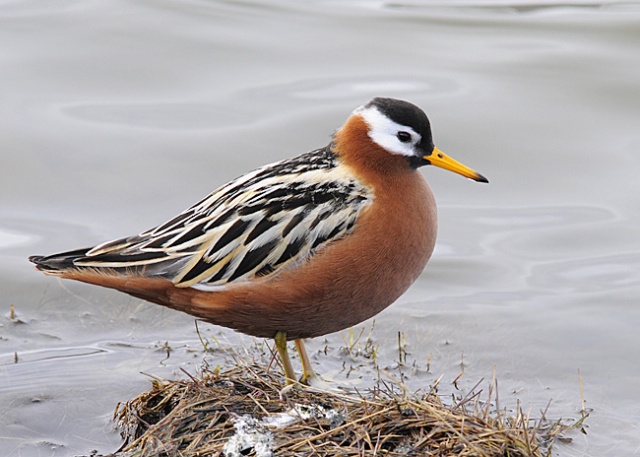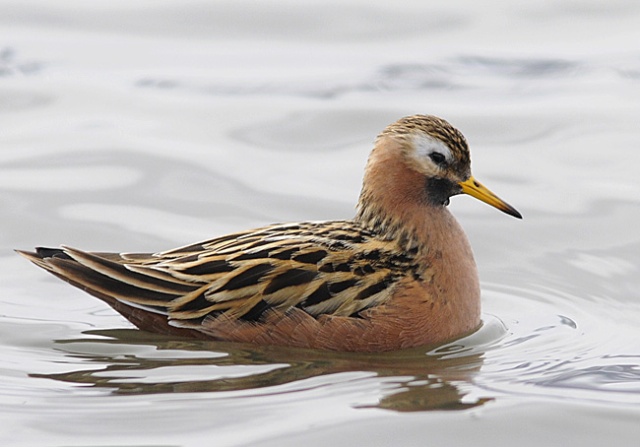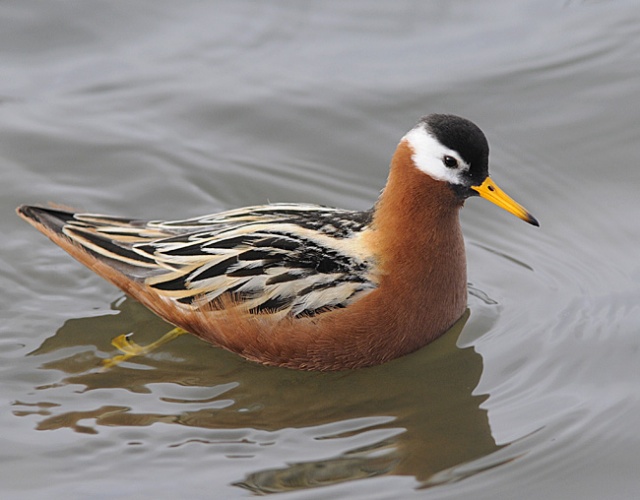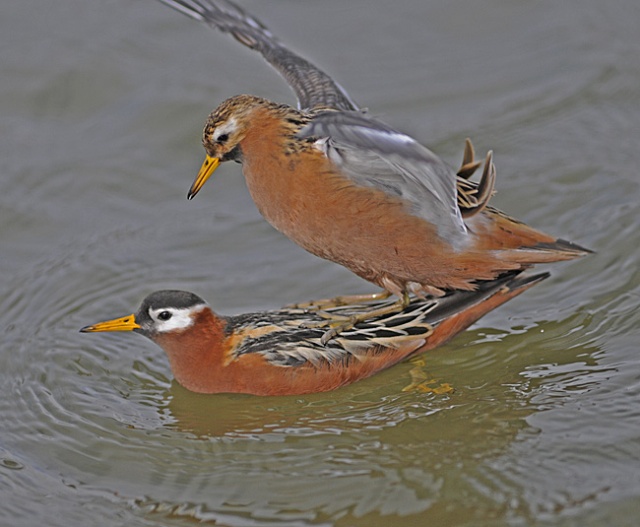Manx Shearwater (Puffinus puffinus)
Red Phalarope (Phalaropus fulicarius)
Fairly small shearwater with jet black upperparts, and pure white underparts. Armpits often with dark markings. White notch behind wing base. Distinguished from Yelkouan and Balearic Shearwater by the always pure white vent. Faint, white wedge behind ear coverts. Legs do not protrude behind the tail. Flight typical of family: Rapid, shallow and stiff wing-beats, with alternating glides. Sometimes with only the primaries moving.
Sound:Vocal at breeding ground. The call is sharp and wailing, and consist of two parts. A drawn, "inhalation", is immediately followed by a trisyllabic "ka-ya-ya".
Song:
Distribution:
Wikipedia: map (se also Xeno-canto below)
Ecology:Birdlife ecology
Links:
Observation.org Latest observations
Image search Flickr NB! May give other species
CCAdult breeding birds unmistakable. White mask, warm rufous brown throat and underparts. Bill noticeably heavier than in Red-necked Phalarope in all plumages and and ages. Female more brightly coloured than male (reversed dimorphism). 1st winter birds differs from Red-necked in white fore-crown, while fresh juveniles have less contrasting markings on back. Both mentioned characters are often difficult, or impossible to use at a distance. With experience and practise, one can use the powerful flight and more stocky build as field marks.
Sound:Flight-call a short and sharp, Coot-like "kit". Cleaner and higher pitched than Red-necked Phalarope. Display sound a rolling cooing, at stable pitch. Other calls: a hissing like the squeezing of a rubber duck, rising quickly in pitch and ending abruptly.
Contact calls:
Distribution:
Wikipedia: map (se also Xeno-canto below)
Ecology:Birdlife ecology
Links:
Observation.org Latest observations
Image search Flickr NB! May give other species
CCCC-sounds,www.xeno-canto.org,Frank Lambert,http://creativecommons.org/licenses/by-nc-nd/4.0/

 English
English Albanian
Albanian
 Armenian
Armenian
 Bulgarian
Bulgarian
 Catalan
Catalan
 Croatian
Croatian
 Czech
Czech
 Danish
Danish
 Dutch
Dutch
 Finnish
Finnish
 French
French
 Georgian
Georgian
 German
German
 Greek
Greek
 Hungarian
Hungarian
 Italian
Italian
 Latvian
Latvian
 Lithuanian
Lithuanian
 Macedonian
Macedonian
 Norwegian
Norwegian
 Polish
Polish
 Portuguese
Portuguese
 Romanian
Romanian
 Russian
Russian
 Sami : Lule sami
Sami : Lule sami
 Sami : North sami
Sami : North sami
 Sami : South sami
Sami : South sami
 Scientific names
Scientific names
 Serbian
Serbian
 Spanish
Spanish
 Swedish
Swedish
 Ukrainian
Ukrainian


